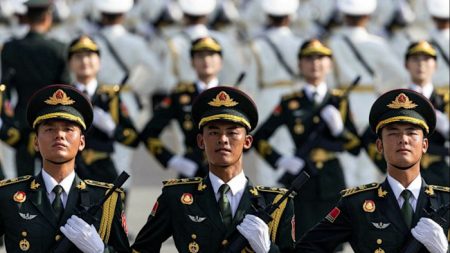Stay informed with free updates
Simply sign up to the Chinese economy myFT Digest — delivered directly to your inbox.
The IMF has upgraded its forecast for China’s economic growth this year but warned that Beijing needed to “scale back” industrial policies that could affect trading partners and increase efforts to lift domestic demand.
Concluding their regular assessment of the health of China’s economy, IMF staff said they were upgrading their forecast for gross domestic product growth in 2024 to 5 per cent, from 4.6 per cent. The multilateral lender also increased its forecast for 2025 to 4.5 per cent, from 4.1 per cent.
The change was driven by stronger first-quarter growth and recent policy initiatives, the IMF said, as Beijing increases stimulus efforts to aid an economy still struggling with the effects of a deep property slump.
But the IMF also reiterated calls to restructure the China’s economy away from inefficient industrial policies supporting “priority sectors” and towards those that favour domestic consumption. Beijing’s own growth target or 2024 is about 5 per cent, the same figure as last year and the lowest figure in decades.
The comments came amid growing concern among China’s trading partners that its industrial policies are creating overcapacity in sectors such as vehicles and renewable energy.
“Key priorities include rebalancing the economy towards consumption by strengthening the social safety net and liberalising the services sector to enable to it to boost growth potential and create jobs,” the IMF said.
“China’s use of industrial policies to support priority sectors can lead to a misallocation of domestic resources and potentially affect trading partners. Scaling back such policies and removing trade and investment restrictions would raise domestic productivity and ease fragmentation pressures.”
The IMF staff’s “Article IV” consultation comes as China’s President Xi Jinping is emphasising what he calls “new productive forces” to drive growth, leading to heavy investment in advanced industries, including renewable energy, electric vehicles and semiconductors.
Worried that their automotive industries could be wiped out by a wave of low-cost imports from China, the US has raised tariffs on Chinese EVs and the EU will soon conclude an anti-subsidy investigation into the industry.
China has rejected claims of overcapacity or subsidies in its renewable energy industries and has accused the US of using trade to try to contain its development and the EU of protectionism.
Read the full article here














